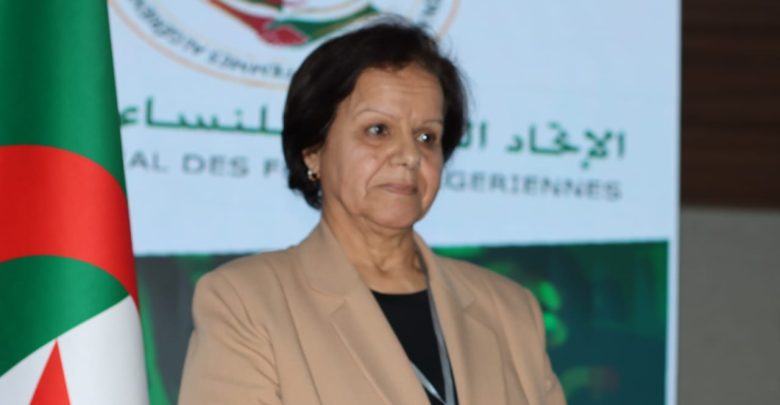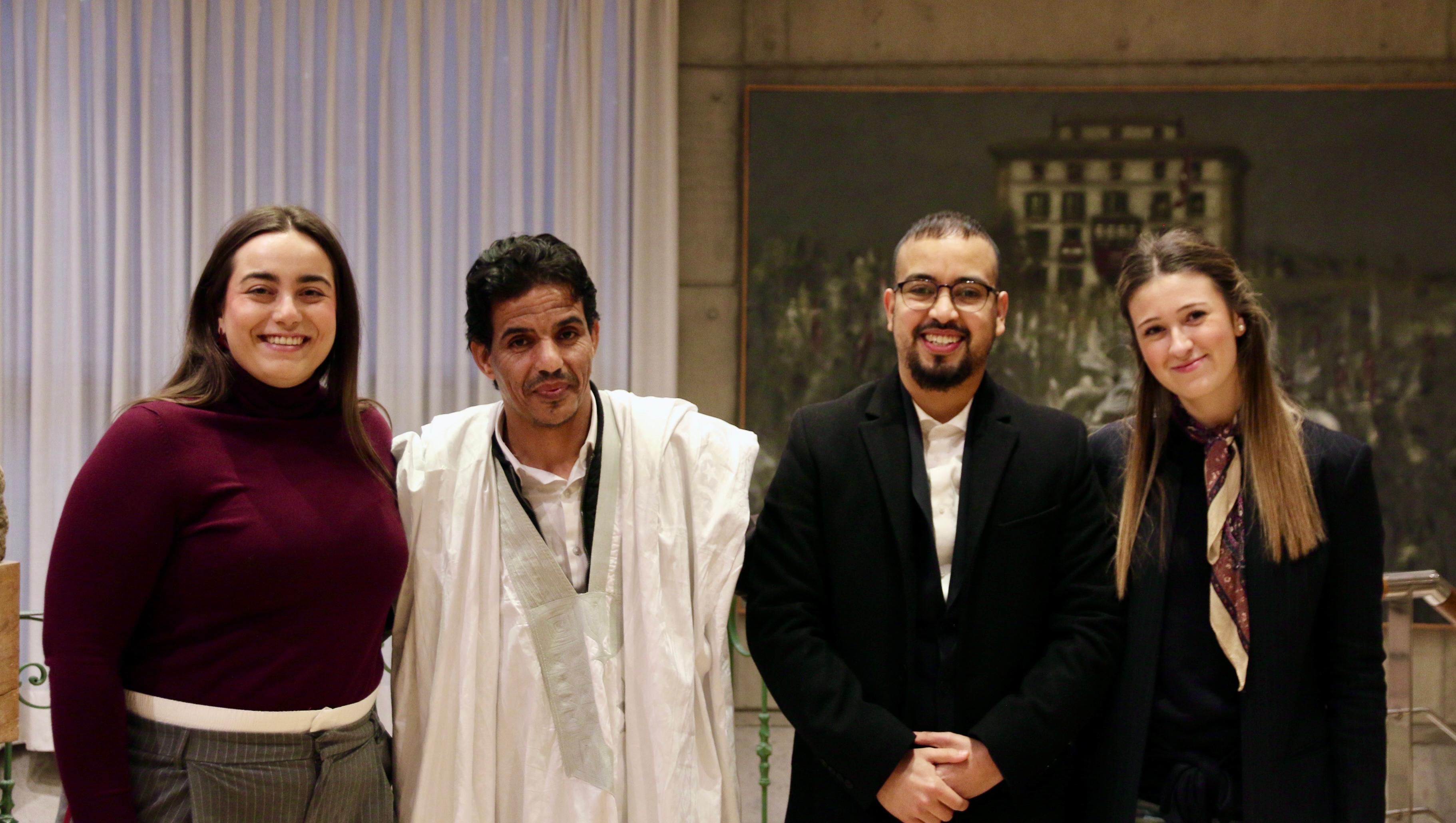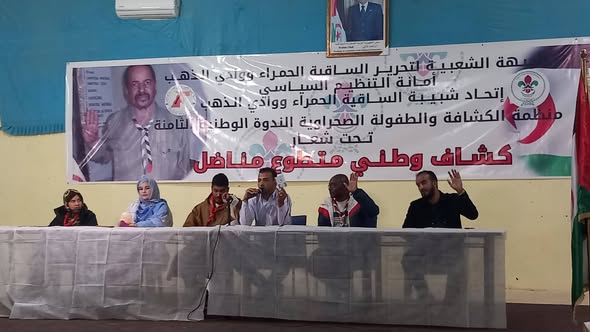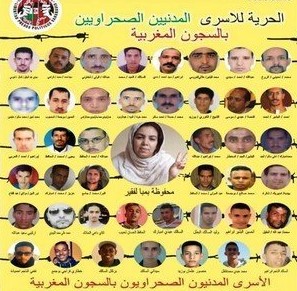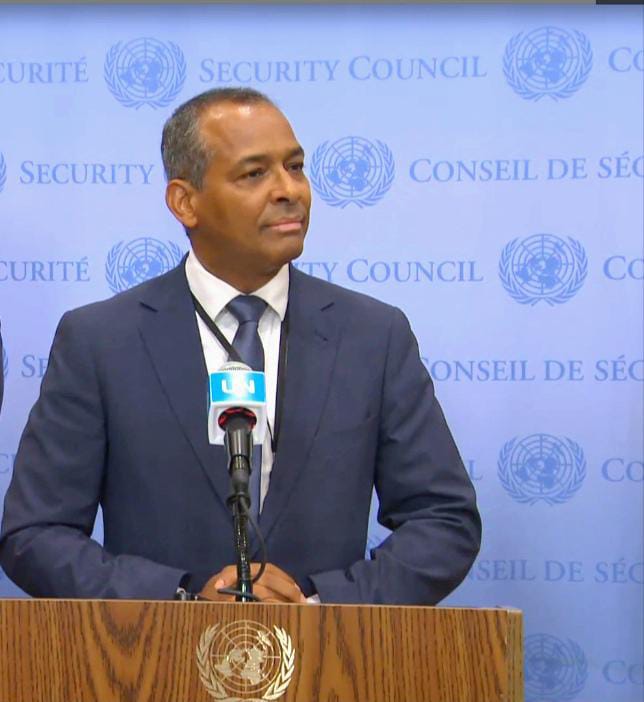
New York (United Nations), 15 May 2025 (SPS) - Member of the National Secretariat, Representative of the Frente POLISARIO at the United Nations and Coordinator with MINURSO, Dr Sidi Mohamed Omar, addressed today a letter to Ambassador Evangelos C. Sekeris, Permanent Representative of Greece to the United Nations and current President of the UN Security Council, in which he refuted, with documented evidence, the false and deceptive claims contained in the recent letter of the representative of Morocco, the occupying state, to the Security Council.
The following is the full text of the letter, a copy of which was obtained by the Sahrawi Press Service (SPS):
New York, 15 May 2025
H.E. Mr Evangelos C. Sekeris
Permanent Representative of Greece to the United Nations
President of the Security Council
Your Excellency,
I would like first to congratulate you on assuming the presidency of the Security Council for this month and to wish you every success in your mission.
The Security Council has recently received a letter from the Moroccan permanent representative to the United Nations in which, as usual, he makes the same unfounded claims about the question of Western Sahara. These claims are nothing but an insult to the intelligence of Member States.
As we have demonstrated with documented evidence in previous letters, including (S/2023/219), (S/2023/456), (S/2024/520), and (S/2024/682), among others, the claims made by the representative of the occupying state are so baseless that they do not warrant a response. However, in the interest of truth and to set the record straight, we will take a closer look at these claims to demonstrate once again that they are false and equally deceptive.
Sahrawi refugees are forcibly displaced because of Morocco’s illegal occupation of their homeland in 1975
In his letter, the representative of Morocco, the occupying state, takes issue with the question of Western Sahara being raised during a briefing by the United Nations High Commissioner for Refugees (UNHCR) to the Security Council. The representative of the occupying state also rehashes the same claims about the Sahrawi refugees, including the oft-repeated allegation of “embezzlement of humanitarian aid”, and even claims that the Sahrawi refugees “are not forcibly displaced persons.”
Western Sahara is on the agenda of the Security Council since October 1975. According to the UNHCR (2016), the humanitarian situation in the Sahrawi refugee camps “is one of the most protracted refugee situations in the world.” Therefore, it is not unusual for the situation of the Sahrawi refugees to be raised in a briefing by the UNHCR to the Security Council.
It is well-known that the Sahrawis have become refugees not because of any natural disaster but primarily because Morocco, the occupying state, forcibly drove them out of their homeland when it invaded and occupied militarily Western Sahara in October 1975 bombing civilians with internationally banned napalm and incendiary phosphorus bombs and wreaking havoc on their livelihoods.
For lack of any credible evidence, the representative of the occupying state leans on a highly questionable report, the so-called “OLAF report” of 2007, which has never been published by the European Anti-Fraud Office (OLAF) or the European Union. As it turned out, the “report” was part of a campaign orchestrated by the occupying state to instrumentalise humanitarian aid in its all-out war against the Sahrawi people.
The United Nations agencies, including WFP, UNHCR and UNICEF as well as international and national NGOs have been operating in the Sahrawi refugee camps for decades, and no one of them has ever backed up the claims made by the representative of the occupying state. The European Union (EU), which is one of the donors present in the Sahrawi refugee camps, has made its position known in this respect on several occasions.
For instance, in his answer (E-004803/2020) given on 18 November 2020 on behalf of the European Commission, Mr Lenarčič pointed out that “The Commission is not aware of a misuse of humanitarian aid provided to the Sahrawi refugees.” The EU statement speaks for itself and needs no further comment.
The baseless claims made by the representative of the occupying state about the Sahrawi refugees cannot conceal the fact that Sahrawis in Occupied Western Sahara live in the largest prison on earth where they are subjected daily to brutal repression by the Moroccan occupying forces away from the scrutiny by the international community because of the media blackout imposed on the Territory.
If Morocco, the occupying state, has nothing to hide, why does it continue to prevent the Office of the United Nations High Commissioner for Human Rights (OHCHR) from visiting Occupied Western Sahara for the ninth consecutive year (S/2024/707, para. 72) and despite the Security Council’s repeated calls on the occupying state to facilitate such visits (S/RES/2756 (2024), among others)?
Why does the occupying state continue to deny entry to foreign journalists and independent observers and deport those who manage to enter Occupied Western Sahara?
The answer is clear: Morocco, the occupying state, fears that the world would know about the atrocities and heinous crimes perpetrated by its repressive forces against Sahrawis in Occupied Western Sahara and the veritable inferno in which they have been living under occupation since 1975.
Western Sahara is a Non-Self-Governing Territory illegally occupied by Morocco and “Madrid Agreement” is without any legal effect on the international status of the Territory
In his letter, the representative of the occupying state claims that “the occupation of the Sahara ended with the return” of the Territory to “Morocco by virtue of the Madrid Agreements of November 1975, of which the General Assembly took note in its resolution 34/58 B of December 1975.”
Interestingly, the representative of the occupying state seems to remember the lesson that he has learnt from our previous letter (S/2024/520) in which we exposed his wilful misrepresentation of General Assembly resolution 3458 B (XXX), when he claimed falsely that the General Assembly had “endorsed” (“entériné” in his original statement in French) the “Madrid Agreement”. However, there remains yet a great deal for him to learn to stop circulating manifestly unfounded claims that are an insult to the intelligence of Member States.
It is a well-established fact that the General Assembly has never “endorsed” or “approved” the “Madrid Agreement”. It has never considered the agreement to have affected the international status of Western Sahara as a Non-Self-Governing Territory in accordance with General Assembly resolution 742 (VIII) of 27 November 1953 and relevant resolutions. The Legal Opinion issued by the Under-Secretary-General for Legal Affairs, the Legal Counsel, on 29 January 2002, at the request of the Security Council is abundantly clear on this issue.
In his Legal Opinion, the Legal Counsel, Hans Corell, established that: “The Madrid Agreement did not transfer sovereignty over the Territory, nor did it confer upon any of the signatories the status of an administering Power—a status which Spain alone could not have unilaterally transferred. The transfer of administrative authority over the Territory to Morocco and Mauritania in 1975 did not affect the international status of Western Sahara as a Non-Self-Governing Territory.” (S/2002/161, para. 6).
If the occupation of Western Sahara had “ended” by virtue of the “Madrid Agreement” of November 1975, as the representative of the occupying state claims, why do the General Assembly and its subsidiary bodies as well as the Security Council remain seized of the question of Western Sahara “as an issue of decolonisation” in the case of the General Assembly and “as a matter of peace and security” in the case of the Security Council (A/79/229, para. 2)?
If the occupation of Western Sahara had “ended” by virtue of the “Madrid Agreement” of November 1975, why did the General Assembly deplore deeply “the continued occupation of Western Sahara by Morocco” in its resolutions A/RES/34/37 of 1979 and A/RES/35/19 of 1980?
Why did the Security Council establish, by unanimous vote of its members and under its authority, the United Nations Mission for the Referendum in Western Sahara (MINURSO) in 1991 to hold a referendum “to enable the people of Western Sahara, in the exercise of their right to self-determination, to choose between independence and integration with Morocco.” (S/21360, para. 1)?
The representative of the occupying state has never been able to answer any of these straightforward questions that demonstrate the absurdity of the entire “argument” on the basis of which the occupying state has been trying to “justify” its illegal occupation of Western Sahara, which has been going on since 1975 in blatant violation of the UN Charter and the Constitutive Act of the African Union.
The occupying state formally accepted the referendum on self-determination in 1988 and then backtracked for fear of losing the referendum
The representative of the occupying state never misses an opportunity to declare his country’s opposition to the referendum that it formally accepted in August 1988 by accepting the UN-OAU “Settlement Proposals” that constitute the core of the mandate of the United Nations Mission for the Referendum in Western Sahara (MINURSO).
Suffice it here to refer to the statement made by King Hassan II of Morocco, on 27 September 1983, before the Thirty-Eighth Session of the General Assembly when he stated on the record that: “Morocco tells you that it is ready for the referendum to take place tomorrow, if you wish it. Morocco is ready to grant all facilities to any observers from wherever they may come so that there may be a ceasefire and a just, equitable and true consultation. And, finally, Morocco solemnly undertakes to consider itself bound by the results of that referendum.” (A/38/PV.8, para. 26).
The representative of Morocco, the occupying state, cannot deny that his former king committed his country to the referendum and solemnly undertook to accept its results. He cannot deny either that afterwards his country reneged on its commitment and “expressed unwillingness to go forward with the settlement plan.” (S/2002/178, para. 48) as reported by the Secretary-General himself in 2002.
Former U.S. Secretary of State, James A. Baker III, who served as the Personal Envoy for the Secretary-General for Western Sahara from 1997 to 2004, explained why Morocco, the occupying state, backtracked on its commitment to the referendum. In an interview with PBS on 19 August 2004, James A. Baker III stated: “the closer we got to implementing the settlement plan… the more nervous I think the Moroccans got about whether they might not win that referendum.”
The representative of the occupying state should therefore stop trying to “justify” his country’s opposition to the referendum, which it had solemnly accepted. The undeniable fact is that the self-determination referendum in Western Sahara has not yet been held, not because of any “voter registration” issues, but only because Morocco, the occupying state, fears the outcome of the referendum. It is as simple as that.
The representative of the occupying state refers to the Moroccan colonialist “initiative” of 2007, which represents the latest evolution in a sustained campaign by the occupying state to frustrate the decolonisation of Western Sahara and deprive the Sahrawi people of their inalienable right to self-determination and independence.
In reality, the so-called “initiative” is no more than a charade through which the occupying state seeks to obtain what it has not been able to accomplish by brutal force or through the ballot box. Self-respecting countries that are genuinely committed to upholding the core principles of the UN Charter and international law, therefore, can never accept, let alone endorse, this colonialist “initiative”, which must be condemned in no uncertain terms.
In conclusion, as we have demonstrated above with documented evidence, the claims made by the representative of Morocco, the occupying state, in his latest letter to the Security Council are manifestly baseless and equally deceptive. If he thinks that repeating the same lies would eventually make people believe them, he is only deluding himself and the audience that he is used to dupe with his theatrics.
I would be most grateful if you would bring the present letter to the attention of the members of the Security Council.
Please accept, Your Excellency, the assurances of my highest consideration.
Dr Sidi M. Omar,
Representative of the Frente POLISARIO at the United Nations and Coordinator with MINURSO

